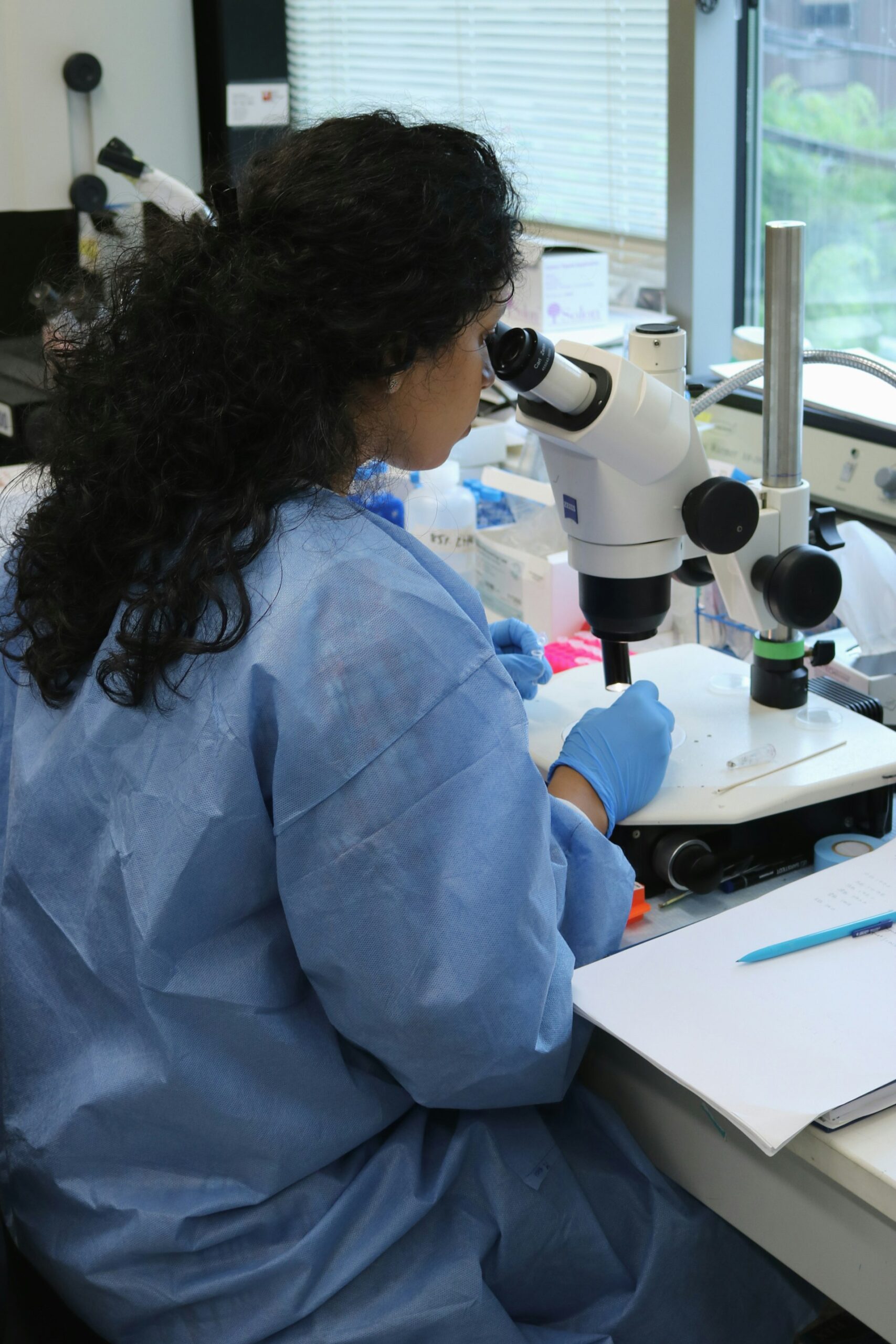The Future of Pet DNA Testing: Navigating Innovation, Insight, and Responsible Ownership


Photo by National Institute of Allergy and Infectious Diseases on Unsplash
Introduction
The landscape of pet DNA testing and genetic research is evolving rapidly, fueled by technological innovation, increasing pet humanization, and a growing emphasis on responsible ownership. As more pet owners seek detailed insights into their pets’ health, ancestry, and unique traits, the industry is responding with advanced, accessible solutions that promise to transform both animal welfare and everyday pet care. This article explores the future of pet DNA testing, offering practical guidance on accessing these services, understanding their benefits, and navigating emerging challenges such as privacy and data governance.
The Growth Trajectory of Pet DNA Testing
The global market for pet DNA testing is expanding at an impressive rate. According to industry analysis, the sector was valued at over $400 million in 2024 and is projected to surpass $1 billion by 2034, driven by a compound annual growth rate (CAGR) exceeding 10% [1] . This surge is attributed to rising pet ownership, increased interest in genetic health, and a broader trend toward treating pets as family members. In the United States alone, the industry is expected to grow at a CAGR of approximately 9.5% between 2025 and 2035, while countries like China are seeing even faster expansion due to urbanization and increased disposable income [3] .
Technological Advancements: AI and Genetic Insight
The accuracy and utility of pet DNA tests have improved significantly, largely due to the integration of artificial intelligence (AI) and advancements in genetic sequencing technology. AI-powered platforms can now analyze complex genetic markers with unprecedented speed and accuracy, resulting in more reliable breed identification, health screening, and trait prediction. Companies such as Embark Veterinary and Wisdom Health employ machine learning to continuously refine their testing methods, allowing for ongoing improvement and customization of test results [1] .
For practical application, pet owners can purchase at-home DNA test kits from major online retailers such as Amazon and Chewy, as well as directly from company websites. These kits typically require a simple saliva sample and provide results within weeks, detailing breed composition, hereditary disease risks, and even behavioral traits [3] . Veterinary clinics are also integrating DNA screening into routine health check-ups, making genetic testing more accessible than ever.
Responsible Ownership: Health, Breeding, and Welfare
Genetic testing is not just about satisfying curiosity-it has become an essential tool for responsible pet ownership. Hereditary disease screening allows owners and breeders to identify carriers of genetic disorders, supporting more informed decisions about breeding and long-term healthcare. Initiatives such as the new DNA testing schemes introduced by The Kennel Club in the UK for gangliosidosis in Shiba Inu dogs highlight how genetic insight can directly support animal welfare and responsible breeding [2] .
In practice, breeders are increasingly required or encouraged by regulatory bodies to conduct DNA tests before breeding, helping to reduce the prevalence of certain hereditary diseases. If you are considering breeding your pet, consult your local breed club or veterinary association for guidance on recommended genetic tests. Many breeders and veterinarians now include DNA testing as part of pre-breeding assessment protocols.
Regulatory Initiatives and Public Policy
Governments and municipalities are beginning to recognize the role of genetic testing in public health and animal welfare. For example, some French cities have introduced mandatory dog DNA testing to help trace uncollected waste and promote responsible ownership. These “genetic passport” systems are being piloted in urban areas to create registries that link dogs to their owners, supporting both cleanliness and accountability [2] . If you live in an area considering or implementing such regulations, check with your local council or animal control authority for compliance steps, which may include registering your dog’s DNA profile with an official database.
Privacy, Data Governance, and Ethical Considerations
As pet DNA testing becomes mainstream, new privacy and data governance challenges are emerging. Some studies show that pet DNA data could inadvertently reveal information about owners, raising concerns about data protection. Innovative companies are developing solutions such as differential data stores (separating owner and pet data), ephemeral identifiers (temporarily linking data), and zero-knowledge proofs (verifying traits without storing identifiable information) [4] .
To protect your privacy, research companies’ data policies before purchasing a DNA test. Look for vendors that offer transparent privacy practices, data deletion options, and compliance with regulations such as the California Consumer Privacy Act (CCPA). If you have concerns, contact the company directly to ask about their data protection measures and opt-out procedures.
Accessing Pet DNA Testing and Genetic Services: Step-by-Step Guidance
1.
Identify Your Goals
: Determine whether you want to learn about your pet’s ancestry, health risks, or breed composition. This will help you choose the right type of test.
2.
Research Reputable Providers
: Look for established brands with a track record of accuracy and transparency. Use customer reviews and consult your veterinarian for recommendations.
3.
Purchase a Testing Kit
: DNA test kits are widely available through major online retailers such as Amazon, Chewy, and direct from company websites. Veterinary clinics may also offer or recommend specific tests.

Photo by CDC on Unsplash
4.
Collect a Sample
: Follow the instructions included with your kit-typically a cheek swab or saliva sample. Ensure you register your kit online if required.
5.
Submit the Sample
: Mail the sample using the provided materials. Track delivery if possible to ensure your sample is received promptly.
6.
Review Your Results
: Results usually arrive in two to four weeks and may include breed breakdown, hereditary disease risks, and trait insights. Discuss findings with your veterinarian to develop an appropriate care plan.
7.
Protect Your Data
: Review the provider’s data privacy policy and take advantage of any offered data deletion or privacy options.
Challenges and Solutions
Despite rapid progress, pet DNA testing is not without challenges. Some tests may have limitations in breed databases or disease markers, affecting accuracy. To address this, choose companies that regularly update their genetic databases and are transparent about their testing scope. Confirm whether the test covers the breeds or conditions relevant to your pet.
Privacy remains a concern, so prioritize companies that clearly explain how your data will be stored, used, and deleted. If privacy is a top priority, ask about anonymous processing or limited data retention policies.
Alternative Approaches and Future Directions
While DNA testing is a powerful tool, it is not the only approach to understanding your pet’s health and heritage. Regular veterinary check-ups, behavioral assessments, and consultation with breed clubs or animal welfare organizations continue to play vital roles. In the future, we may see broader integration of DNA data into pet health platforms, with personalized nutrition and wellness plans based on an animal’s unique genetic profile [3] .
Researchers are also exploring whole-genome sequencing and the use of genetic data for population health surveillance, which could help identify emerging health risks across breeds and regions. As the industry advances, expect to see more affordable, precise, and privacy-conscious testing options, with continued emphasis on responsible ownership and animal welfare.
Key Takeaways
The future of pet DNA testing is bright, characterized by innovation, greater accessibility, and a strong focus on ethical practices. Whether you are a pet owner seeking better health outcomes for your animal or a breeder striving for responsible practices, genetic testing offers actionable insights and practical benefits. To access these services, research reputable providers, consult your veterinarian, and always consider privacy and data governance.
If you are interested in learning more or accessing pet DNA testing, you can:
- Consult your veterinarian for recommendations and available testing options.
- Search for “pet DNA testing kits” on major online retailers such as Amazon or Chewy.
- Contact local breed clubs or animal welfare organizations for guidance on responsible genetic testing.
- Review company data privacy policies before submitting your pet’s sample to ensure your information is protected.
References
- [1] Precedence Research (2025). Pet DNA Testing Market Size and Forecast 2025 to 2034.
- [2] Grand View Research (2025). Pet DNA Testing Market Size & Share | Industry Report, 2030.
- [3] Future Market Insights (2025). Pet DNA Testing Market Size, Trends & Forecast 2025.
- [4] Secure Privacy (2025). Your Dog’s DNA Test Could Reveal More About You Than You Think.






